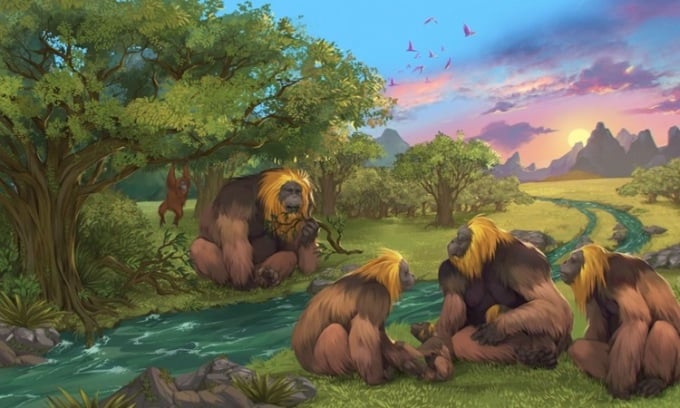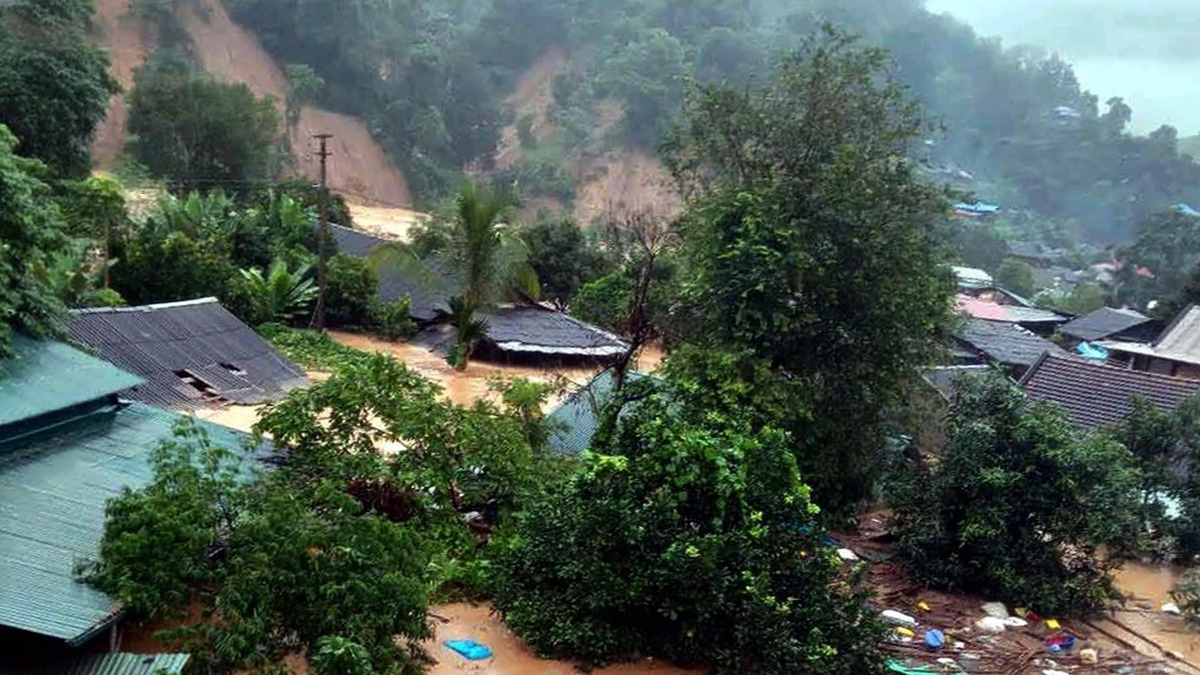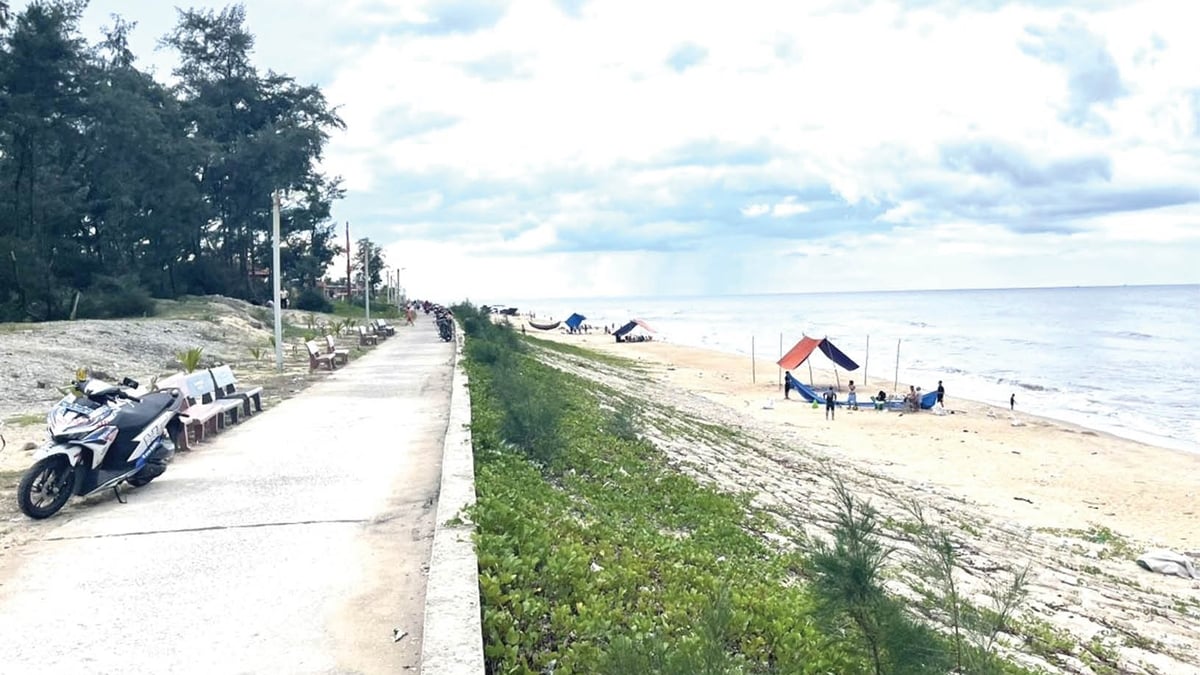The giant ape, measuring 3 metres tall and weighing 300 kilograms, once lived in Southeast Asia and became extinct 250 million years ago due to difficulty adjusting its eating habits to environmental changes.

Reconstruction of the shape of the ape Gigantopithecus blacki . Photo: Nature
Gigantopithecus blacki , a distant human ancestor, roamed the region that includes southern China between 330,000 and 2 million years ago. But the giant ape disappeared long before humans appeared in the limestone plains of what is now Guangxi Province, according to a study by international scientists published on January 11 in the journal Nature.
The team, which included experts from Germany, South Africa, Spain, and the United States and was led by Zhang Yingqi, a professor at the Institute of Vertebrate Paleontology and Paleoanthropology at the Chinese Academy of Sciences, examined evidence collected from 22 caves across Guangxi. They found that G. blacki went extinct near the end of the Pleistocene, much earlier than previously thought. Furthermore, the reason for the extinction of the giant primates was that they were unable to adjust their diet and behavior, compared to more flexible species such as orangutans, said Kira Westaway, an associate professor and geographer at Macquarie University and co-lead author of the study.
G. blacki thrived in dense forests with thick canopies, year-round access to water, and a diet that varied little by season. Around 600,000–700,000 years ago, seasonal variations became more pronounced and open forests became common in what is now southern China, reducing food diversity. Unable to find the food they preferred, G. blacki had fewer fallback sources. The animals became less mobile and had a narrower foraging range. They showed signs of chronic stress and their numbers declined. They eventually became extinct around 215,000–295,000 years ago.
“When G. blacki thrived, the dense forest provided them with fruit wherever they roamed year-round. It was a great living condition because they didn’t have to worry about food,” Zhang explains. “But when the environment changed, their preferred food was no longer available. They then turned to less nutritious options like leaves, bark, and twigs. Even though they could eat such large amounts of food, it didn’t meet their nutritional needs to ensure reproduction. The animals began to face extreme survival pressure. Their numbers dwindled and eventually collapsed.”
Zhang and his colleagues began excavating and collecting evidence from the cave about a decade ago. They sampled cave sediments and pollen to reconstruct the environments in which G. blacki grew and disappeared, while fossilized teeth provided clues about changes in diet and behavior.
In contrast, G. blacki’s closest relative, the orangutan (genus Pongo), thrives by adapting its size, behavior, and habitat preferences to changing conditions. This intelligent primate, which lives only in Asia, shares nearly 97% of its DNA with humans. However, only three species of orangutan have survived to modern times in Sumatra and Borneo. Even the Chinese orangutan ( Pongo weidenreichi ), may only have lived another 200,000 years. Its most recent fossils date back to between 57,000 and 60,000 years ago.
An Khang (According to National Geographic )
Source link


![[Photo] National Assembly Chairman attends the Congress of Thanh Xuan Commune Party Committee (Can Tho) for the 2025-2030 term](https://vphoto.vietnam.vn/thumb/1200x675/vietnam/resource/IMAGE/2025/8/4/923dd3c552cc42d7be60e51cb6e945a1)

































































![[Photo] National Assembly Chairman attends the Congress of Thanh Xuan Commune Party Committee (Can Tho) for the 2025-2030 term](https://vphoto.vietnam.vn/thumb/402x226/vietnam/resource/IMAGE/2025/8/4/923dd3c552cc42d7be60e51cb6e945a1)

































Comment (0)